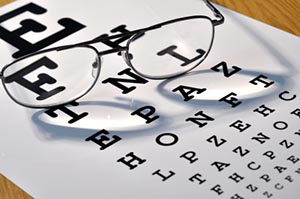
By Al Sunshine, SouthFloridaReporter.com, Consumer Investigator, Sept. 18, 2015 – If there’s an “App for That” does that mean you can even improve your vision with a special program on your home PC, Tablet or Smartphone?
Can you get better vision for just a few bucks at your favorite online vendor like Apple’s App Store and Google Play?
It sure looks that easy with “Ultimeyes.”
Here’s how the company promotes its’ app on its’ website:
ULTIMEYES® is the first program designed to challenge your vision and track progress as performance improves in ULTIMEYES®. Based on principles of Vision Science ULTIMEYES® delivers a unique experience tailored and optimized to each individual using a proprietary adaptive algorithm. There are many factors that determine visual performance in ULTIMEYES® including reaction time, contrast level and accuracy. Improvements in performance in ULTIMEYES® varies on an individual basis.
Sound too good to be true?
The FTC agrees.
It just announced a $150,000 Proposed settlement with the company agreeing to stop making claims it can’t support scientifically.
According to Federal Investigators “This case came down to the simple fact that ‘Ultimeyes’ promoters did not have the scientific evidence to support their claims that the app could improve users’ vision,” said Jessica Rich, Director of the Bureau of Consumer Protection. “Health-related apps can offer benefits to consumers, but the FTC will not hesitate to act when health-related claims are not based on sound science.”
According to the FTC’s complaint, since 2012, Carrot Neurotechnology, Inc. and its co-owners, Adam Goldberg and Aaron Seitz, have advertised and sold Ultimeyes on the company’s website and through third-party app stores including the Apple App Store and Google Play Store, claiming it is “scientifically shown to improve vision.”

Ads for Ultimeyes stated that the app, which sells for between $5.99 and $9.99, would “Turn Back The Clock On Your Vision.” The ads further claimed that users would benefit from “comprehensive vision improvement” for activities such as sports, reading and driving, and that using the app would reduce the need for glasses and contact lenses. The app is based on a series of visual exercises related to reading speed, contrast sensitivity and low light conditions among other elements.
The ads further claimed that studies, including those conducted by Aaron Seitz, prove Ultimeyes works. The FTC alleges that Seitz’s studies and other “scientific research” do not prove Ultimeyes improves vision. The FTC also alleges the marketers failed to disclose Seitz’s affiliation with the company when touting his studies in advertising.
But the company’s website was still online even after the FTC announced its’ action and it sure looked like it was still in business of promoting it’s product. maybe I didn;t read all the fine print online. I wonder if their App could make it easier to read? I’ll pass and put on my reading glasses instead.
Most App stores do have fairly decent refund policies. If you bought the App and want your money back, contact your App Vendor or Credit Card Company.
Health Apps are growing in popularity.
But as Federal Investigators recently warned, so too are health claims from developers who’ve done very little to prove their products really do what they claim.
Like most diet scams, you will lose weight.
If only in your wallet.












